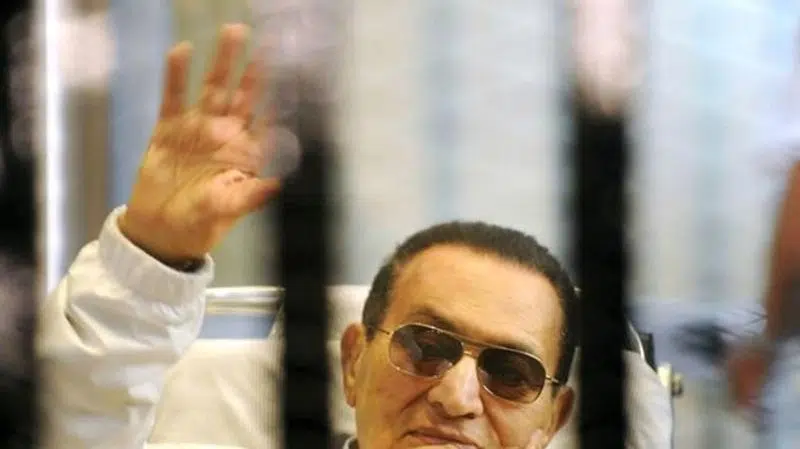
Mubarak, Egypt’s autocrat ousted in uprising, dies at 91
CAIRO — Hosni Mubarak, the Egyptian leader who was the autocratic face of stability in the Middle East for nearly 30 years before being forced from power in an Arab Spring uprising, died Tuesday, state-run TV announced. He was 91.
Mubarak was a stalwart U.S. ally, a bulwark against Islamic militancy and guardian of Egypt’s peace with Israel. But to the hundreds of thousands of young Egyptians who rallied for 18 days of unprecedented street protests in Cairo’s Tahrir Square and elsewhere in 2011, Mubarak was a latter-day pharaoh and a symbol of autocratic misrule.
His overthrow, however, plunged the country into years of chaos and uncertainty, and set up a power struggle between the military and the Muslim Brotherhood group that he had long outlawed. Some two and a half years after Mubarak’s ouster, Abdel Fattah el-Sissi led the military overthrow of Egypt’s first freely elected president and rolled back freedoms gained in the 2011 uprising.
State TV said Mubarak died at a Cairo hospital where he had undergone an unspecified surgery. The report said he had health complications but offered no other details. One of his sons, Alaa, announced over the weekend that the former president was in an intensive care after undergoing surgery.
